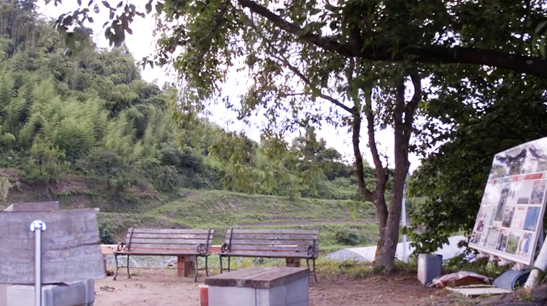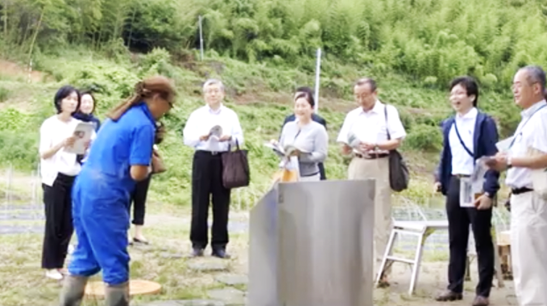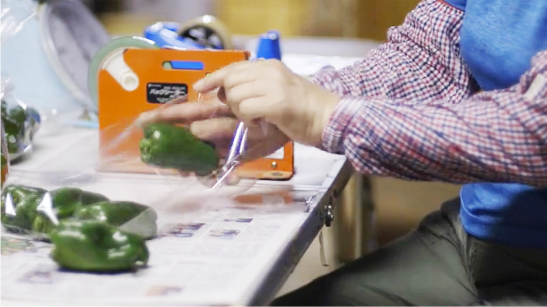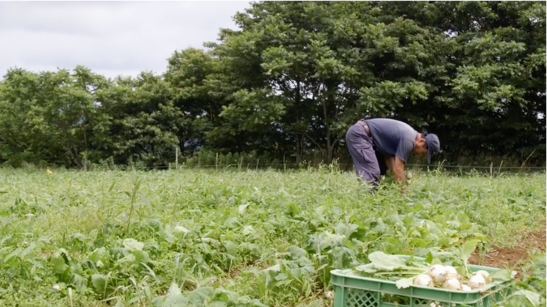In a location only 50km away from the no longer operating Fukushima Daiichi Nuclear Plant,
Nihonmatsu Farm, along with other members associated with agriculture in Fukushima,
have collaborated to create this study farm.
Nihonmatsu Farm, along with other members associated with agriculture in Fukushima,
have collaborated to create this study farm.



With the Non-Profit-Organization "NPO Ganbaro Fukushima", along with many who are actively involved in agriculture, our aim is to help the public gain a better understanding of the current state of Fukushima and its produce. We want as many people to visit and see for themselves how we have moved forward after the earthquake, and to interact with those who make a living here.



At "NPO Ganbaro Fukushima", our aim is dispel the reputational damage caused by radioactivity, through providing safe and delicious produce for consumers throughout the country. To achieve this goal, we at Nihonmatsu Farm and others have collaborated to set out on several ventures.



Nihonmatsu Farm is located in Nihonmatsu-city, Fukushima, and grow produce such as rice and cucumbers. Since the earthquake, through the collaboration of 52 farmers in Fukushima, we have successfully started an online distribution and direct sales to Tokyo.


One-day ticket per-person

※Meals, fruit-harvesting will cost a separate fee
※For overnight accommodation, please consulte
※At request, guides will be provided to take visitors to Nihomatsu Farm’s directly owned- and-run Japanese-style pub, "Takunomi" in front of Fukushima Station.
(Dining fees are seperate)
※For overnight accommodation, please consulte
※At request, guides will be provided to take visitors to Nihomatsu Farm’s directly owned- and-run Japanese-style pub, "Takunomi" in front of Fukushima Station.
(Dining fees are seperate)



Even at the current state, Japan’s agricultural business has been on the decline due to the growing age and retirement of those involved. The meltdown of the Fukushima Daiichi Nuclear Power Plant has accelerated this decline, due to the need for farmland decontamination and a need to dispel damage done to reputation.

For example, with decontamination of rice fields, it was decided in 2012 that 200kg of zeolite (known for its properties of absorbing Cesium) should be spread among each 10 ares of land. With an aging population and growing and harvesting rice alone becoming a burden, these added challenges had forced many to retire.